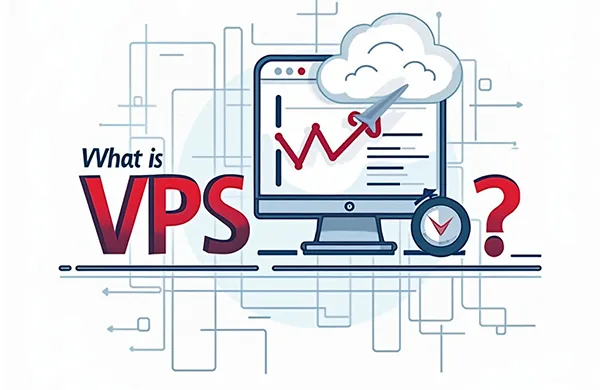A Forex VPS (Virtual Private Server) is a remote, virtualized environment that allows traders to host their trading platforms independently from their personal computers. Unlike typical local setups, which rely on home internet connections and personal device uptime, a Forex VPS runs continuously within a secure, high-performance data center. This server provides the ideal infrastructure for executing automated or manual trades without interruption.
Forex VPS servers are especially beneficial for traders who use Expert Advisors (EAs) or algorithmic trading strategies that depend on consistent operation. The VPS ensures that trades are executed even during local internet outages, power failures, or PC crashes. This eliminates the risk of missed opportunities due to technical issues and ensures your trading platform remains active 24 hours a day, five days a week, aligned with global forex market hours.
Furthermore, Forex VPS services are optimized for low latency and proximity to major broker servers, such as those in New York or London. This architecture reduces the time it takes for trade orders to be processed, improving execution speed and minimizing slippage. For serious traders, particularly those involved in high-frequency or scalping strategies, a Forex VPS is more than a convenience—it’s a critical component of an effective trading setup.

How Does a Forex VPS Work in Trading Environments?
A Forex VPS functions as a virtual computer hosted in a professional-grade data center, running your trading platform independently from your physical device. Traders access this environment via Remote Desktop Protocol (RDP), allowing them to operate trading software like MetaTrader 4 (MT4), MetaTrader 5 (MT5), or cTrader with continuous uptime, regardless of local power or internet issues. The VPS remains operational even when your device is shut down, making it ideal for round-the-clock trading.
Once logged into the VPS, traders can install their EAs, scripts, or indicators just as they would on a standard desktop. However, what sets the VPS apart is its consistent internet connectivity and minimal latency to broker servers. Since these servers are hosted close to major financial exchanges (such as NY4, LD4), the execution speed is significantly enhanced. This ensures that trade orders are sent and processed with minimal delay—crucial for strategies sensitive to milliseconds.
Moreover, a Forex VPS ensures system isolation and resource dedication, meaning your trading activities are not affected by background applications or third-party software. It also allows for easier management of multiple accounts and platforms, without the performance limitations of a personal machine. This level of operational independence is key for traders seeking stable performance, security, and global accessibility.
Why Latency Matters in Forex Trading
Latency in trading refers to the delay between sending a trade order and its execution by the broker. In the volatile and fast-paced world of forex, even milliseconds can mean the difference between a profitable trade and a missed opportunity. High latency can lead to price slippage, where an order is executed at a worse rate than expected, especially damaging in high-frequency or scalping strategies.
A Forex VPS significantly reduces latency by hosting the trading environment close to the broker’s servers—typically in premium data centers located in New York (NY4), London (LD4), or Frankfurt. This geographical proximity ensures faster communication, lowering ping times to single-digit milliseconds. Such performance is essential for real-time market responses and can enhance order fill rates, reducing the occurrence of re-quotes or partial fills.
Minimizing latency also improves the performance of automated trading systems. Expert Advisors that rely on technical indicators or tick-by-tick price movements need immediate access to market data. Any lag in execution can result in mismatches between the strategy’s logic and actual market conditions. By reducing latency, a Forex VPS ensures your algorithm performs optimally, providing a more reliable and profitable trading experience.
Forex VPS vs. Regular Hosting: What’s the Difference?
While both Forex VPS and regular web hosting provide remote access to computing resources, their purpose and configuration are vastly different. A typical shared hosting plan is designed for serving websites and email, not real-time trading applications. These environments often suffer from resource contention and lack the performance isolation needed for trading stability. In contrast, a Forex VPS is tailored specifically for running trading platforms 24/7 with minimal interruption.
Forex VPS environments come with dedicated virtual resources—CPU, RAM, SSD storage—and are optimized to run latency-sensitive trading software. Unlike shared hosting, where hundreds of users may reside on one machine, a Forex VPS ensures that your trading performance is not affected by other users’ activity. This results in more predictable execution, consistent system responsiveness, and fewer platform crashes.
Security is another key distinction. VPS servers are often hardened with firewalls, encrypted RDP access, and routine updates to ensure secure and stable trading. Regular hosting lacks these protections and can be vulnerable to downtime or unauthorized access. For traders relying on automation or managing multiple accounts, these differences make Forex VPS the far superior choice.
Key Benefits of Using a Forex VPS

One of the most important advantages of a Forex VPS is its ability to maintain constant uptime, enabling trading strategies to run continuously without interruption. Whether you’re executing manual trades or relying on algorithmic systems, the VPS ensures you’re not dependent on your home network, electricity, or local device performance. This 24/7 accessibility is especially crucial in a global market that never sleeps.
Another key benefit is low latency. By selecting a VPS provider located close to your broker’s server infrastructure, trade orders are transmitted and filled faster than from a typical home connection. This can lead to more favorable prices, reduced slippage, and a competitive edge, particularly for traders using scalping or high-frequency techniques.
A Forex VPS also offers greater mobility and control. You can log in to your trading environment from any device, anywhere in the world, and immediately resume activity. Your charts, indicators, and Expert Advisors remain as you left them, operating independently of your physical location. This makes a VPS not only a performance upgrade but also a flexible solution for professional trading.
Security Advantages of a Forex VPS for U.S. Traders
Security in online trading is a top priority, particularly for U.S.-based traders handling large investments or proprietary strategies. A Forex VPS enhances security by isolating your trading environment from the public internet and shielding it behind enterprise-grade firewalls. Most quality VPS providers offer encrypted Remote Desktop Protocol (RDP) sessions, which protect your credentials and data during transmission.
In addition to encrypted communication, VPS systems are hosted in data centers with controlled physical access, multi-layer security protocols, and 24/7 monitoring. These environments often include automated backups, threat detection, and rapid patch deployment—safeguards that aren’t typically present on personal desktops or home networks.
This enhanced security posture is especially critical when running automated trading systems. With a VPS, traders can rest assured that their EAs or scripts aren’t interrupted or compromised by local malware, unauthorized access, or system updates gone wrong. It’s a peace-of-mind investment for serious professionals in a highly competitive market.
How a VPS Ensures 24/7 Trading with Zero Downtime
Forex markets operate continuously throughout the business week, which means traders must stay connected to avoid missing critical price movements. A Forex VPS guarantees this constant connectivity by hosting your platform in a data center with redundant power sources, multiple internet carriers, and proactive infrastructure monitoring. These measures collectively eliminate the risk of downtime caused by local power or ISP failures.
The ability to maintain uninterrupted access is especially valuable for strategies that rely on automation. Expert Advisors and trade bots are designed to execute rules instantly when market conditions are met. If your system goes offline at a critical moment, it could result in missed trades or even financial loss. A VPS maintains the operational integrity of these systems by providing a stable, always-on environment.
Beyond uptime, many premium VPS providers offer performance monitoring and instant alerts in case of technical irregularities. This ensures you are always in control and can react to issues in real-time. For professional traders managing multiple accounts or portfolios, this level of reliability is not optional—it’s essential for sustained success.
Best Forex Platforms Compatible with VPS

The most widely used trading platforms in the Forex industry—MetaTrader 4 (MT4), MetaTrader 5 (MT5), and cTrader—are fully compatible with Forex VPS environments. These platforms are known for supporting advanced charting tools, algorithmic trading, and fast execution, all of which benefit from the uninterrupted uptime and low latency of a VPS.
MT4 and MT5 in particular are designed with automation in mind, allowing traders to deploy Expert Advisors that operate 24/7. On a VPS, these platforms run continuously without interruption, even if your local device is offline. This helps reduce slippage, ensures timely trade execution, and keeps logs of all trading activity for review.
Installing these platforms on a VPS is simple. Once logged in via Remote Desktop, you can install and configure them exactly as you would on a local machine. With VPS hosting, however, the added benefits of speed, security, and accessibility enhance the overall performance and usability of these platforms for serious traders.
How Forex Robots (EAs) Perform Better on VPS
Expert Advisors (EAs) are automated trading systems designed to analyze market conditions and execute trades based on predefined rules. Their effectiveness, however, depends heavily on uptime and execution speed—two areas where a Forex VPS shines. By hosting your EA on a VPS, you ensure it operates nonstop and without disruption from power outages, computer restarts, or unstable internet.
Latency is another critical factor. EAs often require near-instant order execution to be effective, especially in strategies like scalping or grid trading. A VPS minimizes the delay between signal generation and broker response, enhancing the EA’s performance and improving profitability.
Additionally, a VPS allows for better resource allocation and isolation, reducing the chances of interference from other software. EAs can function with maximum stability and consistency, and advanced users can run multiple instances across different accounts or platforms—all within a single VPS environment.
Can a Forex VPS Reduce Slippage and Missed Orders?
Slippage occurs when a trade is executed at a price different from what was intended, typically due to delays in order processing. In Forex trading, especially during volatile conditions, even a few milliseconds of lag can make a noticeable difference. A VPS helps reduce slippage by maintaining a direct, high-speed connection to your broker’s server.
By placing your trading terminal on a VPS near your broker’s data center, you minimize network hops and latency. This results in faster order execution and a higher probability of receiving the exact price you expected. It’s particularly beneficial for high-frequency traders and scalpers, where precision is critical.
A VPS also ensures that orders are processed even when your home setup experiences issues. You avoid the common risks of missed entries or delayed exits due to ISP outages or system crashes. With a reliable VPS, your orders remain timely, reducing friction in trade execution.
Why Scalpers and High-Frequency Traders Rely on VPS Servers

Scalping and high-frequency trading (HFT) strategies involve placing a large number of trades in very short timeframes. In these models, execution speed and system reliability are non-negotiable. A Forex VPS offers the low latency and consistent uptime required to ensure these trades are executed promptly and without error.
By using a VPS, traders can position their platform physically closer to the broker’s servers, achieving latency as low as 1 millisecond. This drastically improves fill rates and reduces the risk of slippage, helping scalpers capitalize on narrow spreads and fleeting price discrepancies.
Furthermore, a VPS environment is optimized to handle the rapid computation and bandwidth demands of high-frequency strategies. It allows for fast data processing, reliable scripting execution, and uninterrupted connectivity, which are critical for maximizing the profitability of such high-pressure trading styles.
Choosing the Right VPS Server Location: NY, London, or Frankfurt?
The geographical location of your Forex VPS has a direct impact on latency. For U.S.-based traders working with brokers in New York, hosting your VPS in a New York data center (e.g., NY4) provides the fastest route for trade execution. Similarly, European traders often prefer London (LD4) or Frankfurt due to their proximity to major financial institutions.
Selecting a VPS near your broker’s server minimizes ping times, ensuring trades are executed with minimal delay. This is especially important for time-sensitive strategies, such as news trading or scalping, where a few milliseconds can alter outcomes.
Before selecting a location, use latency testing tools or ask your broker for optimal server locations. A properly positioned VPS not only reduces slippage but also enhances your overall trading performance, giving you a competitive edge.
Managed vs. Unmanaged Forex VPS: Which One Should You Choose?
A Managed VPS is ideal for traders who want to focus solely on trading without dealing with server configuration, software updates, or security patches. The hosting provider handles all maintenance, making it a worry-free solution for non-technical users or those with limited IT experience.
In contrast, an Unmanaged VPS offers more flexibility and control. You are responsible for installing software, monitoring performance, and applying updates. This option suits experienced users who prefer custom setups or need to run multiple, complex configurations.
Choosing between managed and unmanaged VPS depends on your technical comfort level and trading requirements. For most professional traders, especially those using automation, a managed plan strikes the right balance between convenience and control.
Minimum Technical Requirements for Running Forex on VPS
To run a single instance of MT4 or MT5 with a couple of EAs, a basic VPS setup with 1 vCPU, 2 GB RAM, and SSD storage will usually suffice. This ensures smooth performance for lightweight tasks without overwhelming system resources.
However, if you’re running multiple platforms, backtesting strategies, or using complex indicators, you’ll need more robust resources—perhaps 2–4 vCPUs and 4+ GB RAM. Resource bottlenecks can lead to lag, freezing, or even platform crashes, which could have serious consequences during live trading.
It’s crucial to match the VPS configuration to your specific trading style. Overestimating slightly is often better than underestimating, ensuring your system remains stable and responsive even during periods of high volatility or CPU demand
Top Features to Look for in a Forex VPS Provider
Not all VPS services are created equal. When choosing a Forex VPS provider, prioritize those offering low latency, ideally under 5 milliseconds to major brokers. Data center location, hardware quality, and routing efficiency all impact this metric.
Look for features like 99.99% uptime guarantees, firewall protection, regular backups, and 24/7 support. Some providers also offer one-click MT4/MT5 installations, making setup faster and easier for beginners.
In addition, check for scalability options, allowing you to upgrade resources as your trading demands grow. A provider that specializes in financial hosting will likely offer a better experience than a generic cloud host.
Is Free Forex VPS Worth It or Risky?
Some brokers offer free VPS plans as part of promotional packages, often requiring a minimum deposit or trading volume. While appealing, these free plans usually come with limited resources, shared environments, and minimal support.
Such limitations can lead to sluggish performance, increased latency, or even unexpected downtime—factors that can directly impact your trading results. Free plans may be fine for testing, but they rarely meet the standards of live, high-performance trading.
Serious traders should view VPS hosting as a strategic investment rather than a cost to be minimized. Paid VPS plans provide the performance, stability, and security that free options often lack.
How to Set Up MT4/MT5 on a Forex VPS (Step-by-Step)
Connect to your VPS using Remote Desktop Protocol (RDP)
Download your trading platform from your broker’s website
Install the platform and configure your accounts, indicators, and EAs
Once setup is complete, leave the platform running. The VPS will keep it active 24/7, enabling consistent trading without your physical presence. You can disconnect anytime—your trades will continue uninterrupted.
If you’re using a managed VPS, some providers offer pre-installed MT4/MT5 environments. This saves time and minimizes the chance of configuration errors. Regardless, the process is user-friendly and quick to learn for most traders.
How Much Does a Good Forex VPS Cost?
VPS pricing varies depending on the resources provided, data center location, and whether the plan is managed. Basic plans suitable for light trading can start as low as $10/month, while professional-grade setups with premium specs may cost $40–$80/month.
Managed VPS plans typically cost more but offer ease of use, peace of mind, and technical support. For automated or high-frequency traders, this added cost is often justified by reduced downtime and better execution quality.
When choosing a VPS, don’t make price the only factor. Instead, evaluate reliability, latency, customer support, and included features to find the best fit for your trading needs.
Who Should Not Use a Forex VPS?

If you trade infrequently, manually, and only during specific hours when you’re available, a VPS may not be necessary. The advantages of uptime and latency are less impactful for casual traders who aren’t reliant on automation.
Also, beginner traders who are still learning the basics of trading platforms and market behavior might find VPS setups unnecessarily complex at this stage. It’s better to master your strategy and trading tools first.
That said, as soon as you move toward automation, multi-account trading, or more frequent activity, transitioning to a VPS becomes a smart next step.
Ready to upgrade your trading experience?
Choose a premium Forex VPS Server from Rackset and never miss a trade due to internet issues or downtime again.
Experience low-latency, secure, and reliable infrastructure tailored for high-performance forex trading.
Start trading smarter, faster, and safer — Get your Forex VPS Now!
Conclusion: Is a Forex VPS Right for Your Trading Strategy?
A Forex VPS offers immense benefits for traders who prioritize speed, consistency, and autonomy. Whether you’re running EAs, executing news-based scalping strategies, or managing portfolios across multiple platforms, a VPS can enhance every aspect of your trading infrastructure.
Its ability to operate independently of your hardware ensures trades remain uninterrupted, precise, and secure. It transforms your trading setup from a fragile home system into a robust, enterprise-grade environment.
For serious traders aiming to reduce execution risk and increase strategy efficiency, adopting a Forex VPS isn’t just useful—it’s essential for staying competitive in global markets.










Leave a Reply